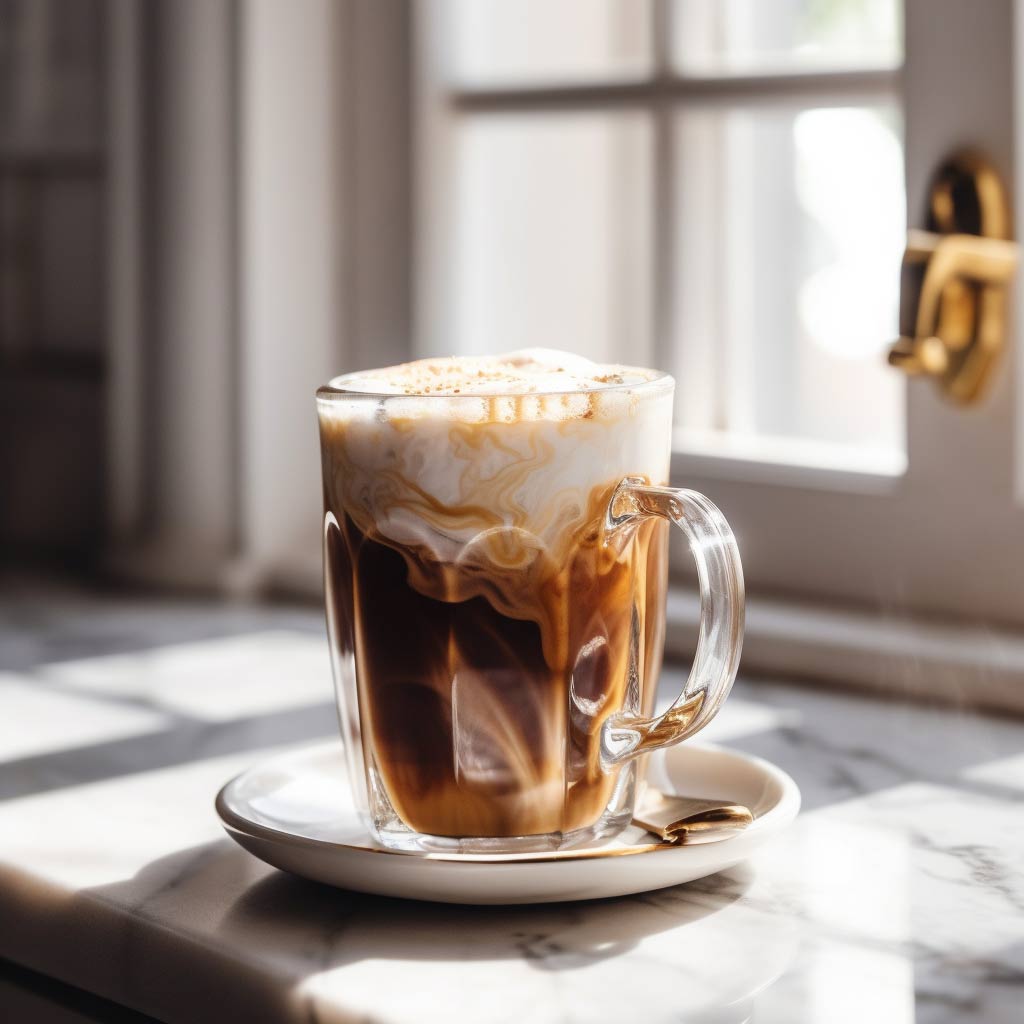
Quartz has become a popular backsplash material, for both its durability and its aesthetic value. A quartz backsplash can add an element of sophistication and style to a kitchen. We’ve used a quartz backsplash in two kitchen designs, including our own. And after three years of using our kitchen on a daily basis, we couldn’t be happier with our decision. Let’s take a closer look at using quartz as a backsplash so you can decide if it is right for your kitchen!
What We Love About a Quartz Backsplash
Quartz is incredibly durable and (in my opinion) far superior to other materials such as tile or marble. It’s easy to clean and maintain, making it a great choice for busy kitchens that need to withstand frequent use, spills, and splashes. Quartz is also non-porous, so bacteria and molds won’t have anywhere to hide in-between cleaning sessions.
Having your countertop continue into your backsplash creates a seamless aesthetic that I’m a huge fan of. And I love that there are so many colors, patterns, and designs that can match whatever style you are trying to achieve in your kitchen. Quartz slabs are available in glossy finishes as well as matte ones, giving you the opportunity to find something that perfectly fits your taste. The great thing about quartz is that it doesn’t need any sealing or polishing like some other materials do Just wipe it down with some warm water and mild detergent when it needs cleaning
Quartz backsplashes are also surprisingly cost-effective, in a long-term kind of way. While they may not be the cheapest option out there, they will certainly give you more bang for your buck than many other materials on the market today. Since they’re so durable and low-maintenance, you won’t have to worry about replacing them anytime soon. Nor will you have to worry about them going out of style, as you would certain tile backsplashes. This will save you money in the long run!
Quartz Backsplash: Pros and Cons
Pros of using quartz backsplash in a kitchen:
- Durability: Quartz is a very hard and durable material, so it is resistant to scratches, chips, and stains. This makes it a great choice for a backsplash, as it can withstand the wear and tear of everyday life in a kitchen.
- Easy to maintain: Quartz is a non-porous material, so it is very easy to maintain. You can simply wipe it down with a damp cloth to keep it clean, and it is resistant to bacteria and germs.
- Wide range of colors and styles: Quartz comes in a wide range of colors and styles, so you can find a look that matches your kitchen’s decor.
- Heat resistance: Quartz is resistant to heat, so it can withstand the heat of a stove or oven without being damaged.
- Seamless material: No grout joints to worry about keeping clean.
Cons of using quartz backsplash in a kitchen:
- Cost: Quartz can be more expensive than other materials, such as ceramic tile.
- Heavy: Quartz is a heavy material, so it may require additional support when installed as a backsplash.
- Professional installation required: Because of its weight and the precision required, it is best to have a professional install a quartz backsplash. This can add to the overall cost of the project.
- Limited design options: While there are many colors and styles available, the design options for quartz backsplashes may be more limited than those for other materials.
How to Clean Quartz Backsplash
As I’ve already mentioned, quartz is a very durable material, and stain resistant. But that doesn’t mean that it can’t be stained or get dirty. This means you still need to clean it from time to time. And if you do splash something on your quartz backsplash, make sure to clean it off as soon as you can as a precautionary measure.
Here are some more tips on keeping your quartz backsplash clean:
The simplest way to clean your quartz backsplash is with soap and water. Using a damp cloth or sponge, lightly scrub the surface of the quartz. Then rinse it with warm water before wiping it dry with a cloth or paper towel. For tougher stains, you may need to scrub more vigorously with the soap-and-water solution. Just be sure not to use anything too abrasive as this could damage the surface of the quartz.

If soap and water aren’t enough for tough stains, try using vinegar instead. Make sure you use white vinegar (not apple cider vinegar) as that’s safer for quartz surfaces. Simply mix equal parts white vinegar and warm water in a spray bottle, then spray the mixture directly onto your backsplash before wiping it away with a damp cloth or sponge. If necessary, you can wipe down the surface again with plain warm water afterwards.
If you’re still having trouble getting rid of stubborn stains on your quartz backsplash, it’s time for a specialized cleaner! Look for one specifically designed for natural stone like granite or marble—these will work just as well on quartz surfaces too! Spray the cleaner onto the backsplash and let sit for 10-15 minutes before wiping away with a wet rag or sponge. As always when using specialized cleaners, make sure you follow all instructions carefully!
Final Thoughts
Quartz backsplashes are becoming increasingly popular due to their combination of beauty, durability, and seamless aesthetics. They come in a variety of colors and styles for maximum flexibility when designing your dream kitchen. Plus, since quartz is so low-maintenance compared to other materials like tile or marble, you won’t have to worry about spending time scrubbing, sealing, or trying to keep grout joints clean every few months.





No Comments